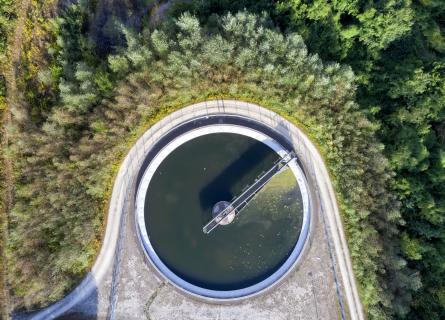
Trustworthy AI in cities of the future
Artificial intelligence, AI, will play an increasingly important role in the development of sustainable cities. With the help of AI, compiled data about people’s and vehicles’ movement patterns can create communities that consume less energy, and a safer and more efficient transport network. But the emergence of AI also raises issues concerning personal privacy. For AFRY privacy has been central in the development of the AI tool Flowity.
Growing cities involve new challenges for people and the environment, with greater strain on central infrastructure such as energy supply, waste management, and public transport. Connected systems are increasingly being used to boost efficiency and tackle the problems that arise with urbanisation and population growth. But the success of this depends on the collection and analysis of enormous amounts of data that indicate how people live in a city. With the right data and AI there is tremendous potential to design solutions that make society more sustainable, while it also places greater demands on solutions that can ensure privacy and security.
Tool to optimise public spaces
One such solution is Flowity, a product created by AFRY that analyses video feeds using AI and converts the information into anonymised data. The system uses machine learning, which enables a computer to recognise objects. Through the technology, an algorithm has been trained to recognise objects in images that were previously only recognisable by humans – this is known as image recognition. Flowity can then report both how many people or objects are within a given area and how much time they spend there.
A unique aspect of Flowity is the application of deep neural networks for movement analysis, which heightens the degree of correct detections and is more adaptable compared to older technologies. The technology also enables the detection of objects in the image even if they are stationary, which reduces the margin of error in the movement analyses. The information can then be used to regulate ventilation and heating in a building, for example, based on how people use different spaces and rooms.
“We have so far mainly tested Flowity with several major property companies, but we see that this exciting technology creates incredible opportunities to enable real time analyses of different areas and to provide a statistical foundation for various urban planning projects. The idea is also that Flowity will be able to integrate with other systems, such as digital twins or geographic information systems (GIS), thereby contributing to complete digital mapping of a building or block,” says Per Brendelökken, Systems Developer at AFRY.

Looks like a Lego brick
A central issue captured in the project is how people perceive AI such as Flowity when it is introduced into the public sphere. The feeling of surveillance, that your movement patterns and behaviour are being analysed, becomes particularly tangible when cameras are fitted in public spaces. Here, the physical, exterior design of the system is crucial to gain the trust of the general public.
“In practice Flowity acts more like a sensor in a conventional people counter than a surveillance camera, and we have reinforced this in the exterior design by making it look more like an oversized Lego brick than a camera,” says Fredrik Hofflander, Product Owner of Flowity.
Ethical issues
In many cases it is a challenge to design a system which provides an analysis that is as complete as possible, while also taking account of personal privacy. Discussions about individuals’ privacy and data security have naturally been considered throughout Flowity’s development process – especially in the initial design phase.
“What’s great about Flowity is that there has been constant focus on personal privacy. The data must not only be processed anonymously and meet GDPR requirements, but the issue of privacy has also been a natural consideration in creating Flowity’s design and function. The solution is already integrated in the tool without us having to rely on the data later being used ethically by a third party,” says Fredrik Hofflander.
In practice this means that no nonanonymised data or images are saved. In contrast with many other AI tools, Flowity can process the sensor input directly, without any sensitive information being sent to a secondary source.
“We have designed the product in such a way that we never save the video since Flowity processes it in real time. The only output is statistical data. Many sustainable values can originate from AI technology – if used correctly. That’s why we want to ensure that people can feel secure when AI such as Flowity becomes part of everyday life,” says Roger Tedblad, Software Developer at AFRY.






